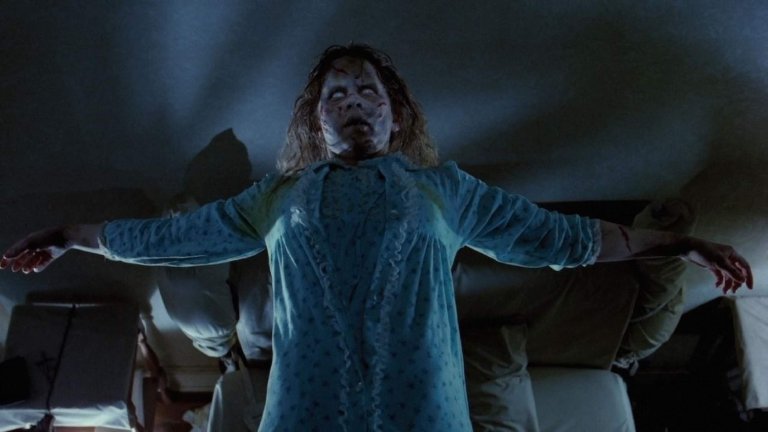The One Thing Mike Flanagan’s Exorcist Sequel Has to Get Right
Mike Flanagan needs to match the original's mix of faith and doubt if he wants his Exorcist movie to work.

On paper, it sounds like the upcoming Exorcist film is going in the right direction. Instead of following the initial plan to let David Gordon Green make two more sequels to The Exorcist: Believer, Blumhouse hired Mike Flanagan to write and direct a new take. Moreover, Flanagan has already secured an A-list star in Scarlett Johansson, signaling a level of prestige higher than the previous movie’s star Leslie Odom Jr. (who does excellent work, despite a terrible script).
But the success of 1973’s The Exorcist didn’t stem from the stars or from studio support. Heck, it didn’t even really come from William Friedkin’s skills as a director or screenwriter William Peter Blatty’s ability to write a script. Rather, it came from the faith of the two men: Blatty, the devout Catholic, and Freidkin, the committed atheist. Without that tension at the center, no Excorcist sequel can match the power of the original.
As a student at Georgetown University, young William Peter Blatty was enraptured by the story of a demon so tenacious that it took a team of priests and several rituals to expel it. The story stuck with the true believer Blatty, so much so that he eventually turned it into his 1971 novel The Exorcist, which soon was picked up by Warner Bros.
Blatty managed to secure a producer credit for himself, which allowed him to choose the man who would adapt his work. Blatty picked William Friedkin, then best known for his work on documentaries, because he could communicate the reality of demonic possession. But the two soon found themselves butting heads over the material, with the writer convinced that Satan was an existential threat and the director more concerned with Regan MacNeil’s (Linda Blair) medical condition.
The conflict resulted in a perfect movie. At no point does The Exorcist itself deny the supernatural, as demonstrated by infamous scenes such as the one in which Regan turns her head 180 degrees and mimics the voice of a man she killed. But Friedkin never allows the material to become sensational, let alone preachy, turning his attention to the deep conflict within Father Karras (Jason Miller) and Regan’s mother Chris (Ellen Burstyn).
As a critical and commercial hit, now canonized as one of the great horror movies, The Exorcist has spun off sequels and a TV series. Yet, none of them have come even close to replicating the power of the first one. Sometimes, the problem can be attributed to the people behind the camera: Green’s ecumenical approach for Believer undercut its own themes, John Boorman had a crazy approach to Exorcist II, and Renny Harlin‘s glossy style meshed poorly with the material.
On paper, letting Blatty direct Exorcist III or giving the fourth movie to Paul Schrader, who combined faith and doubt perfectly in films like The Last Temptation of Christ or First Reformed, seem like a slam dunk, but both produced dull riffs on the 1973 film. Only the Fox show has really worked, and that’s because it plays more like prestige television than a continuation of The Exorcist.
All of which brings us back to Mike Flanagan. No current filmmaker has been better than Flanagan about exploring the relationship between faith and doubt. The beautiful monologues he wrote for Midnight Mass and The Haunting of Bly Manor reveal a mind both sensitive to the beauty of belief and cognizant of the demands of the real. Theoretically, he could bring both Blatty’s faith and Friedkin’s doubt to his Exorcist film.
If Flanagan can combine the two, then his Exorcist movie will finally justify the many attempts to build on the 1973 film. If not, then it will just be the latest sin against a cinematic masterpiece.
